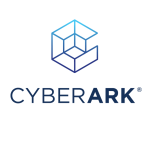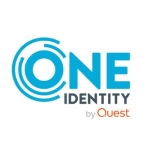What is our primary use case?
I have used the solution on a couple of projects for a client, mainly for storing credentials and secrets, such as API keys and application or username passwords into the vault, as well as certificates.
It is used for anything we need to keep safe and secure and not have users access, except via applications that programmatically access Key Vault and retrieve the secrets and connect to other APIs. That way, we don't supply usernames and passwords within application code or to people. We vault them in Key Vault and those secrets can be used within an application without human intervention.
Azure Key Vault is a SaaS solution.
How has it helped my organization?
You have to have this to make sure that you're compliant with security and governance. One of the main concerns with compliance is how you manage keys and secrets in your cloud environments. You're encrypting your data at rest and in transit, but where do you store the encryption key itself to not become compromised? Key Vault addresses all those concerns. This is one of the main tools and, without it, it's hard to implement and address one of the main pillars of cloud architecture, which is security.
The whole nature of it is to help make things autonomous, because you can run infrastructure as code. That really takes away the human factor and you can fully automate the creation and management of, and access to, the keys, including the rotation of the keys. By taking away the human element, it's really secure. And, implementation-wise, when you're using Key Vault, Microsoft is behind it and they're using the best methods for encryption and ciphering of keys. You don't have to worry about those things.
It really simplifies the whole process, in contrast to needing in-house experts to help you facilitate key management. When it comes to two main concerns, encryption of the data in transit and at rest, it is a service that is with you all the time. It has a low cost and it's ready to implement. You don't have to have 10 developers build something that you don't even know will be successful, versus a service that has already been tested across global enterprise companies.
What is most valuable?
All its features are really valuable. It's really well thought-out. It's a complete turnkey solution that has all the concerns taken care of, such as access control and management. You can use it in infrastructure as code to create key vaults, APIs, PowerShells, CLIs, even Terraform.
You can also use it in different services across the board. If you have app services, or virtual machines, Kubernetes, or Databricks, they can all use Key Vault effectively. In my opinion, in a DevSecOps, DevOps, or even in a modern Azure implementation, you have to use Azure Key Vault to make sure you're addressing security and identity management concerns. By "identity" I mean usernames, passwords, cryptography, et cetera.
It's also a regional solution and it frees you up from using third parties like HashiCorp Vault, for example.
In addition, there is a feature in Azure called managed identities, and when storing your credential or any keys or secrets in that you can have your code use managed identities to access Key Vault. That simplifies the whole process of connecting to Key Vault and retrieving your secrets, passwords, and credentials.
It's a full-blown solution and it supports most breeds of key management: how you store keys and certify.
I can't say that one of its features is better than others. You have to have all of them to make it a competent service, although one of the especially important features is the connection with monitoring and logging, so you can see who had access to what.
What needs improvement?
If you check the capabilities of other key management services across Amazon, HashiCorp, and Google, there are features that Key Vault doesn't have. It could be the case that when you use Key Vault, you might be forced to use a third-party solution to get certain services. If those services could be included in Key Vault, there would be diminished reasons to go for a third-party key management system.
For how long have I used the solution?
I was using Microsoft Azure Key Vault until two years ago, but since then I've been actively using it for two or three different projects.
What do I think about the stability of the solution?
It's stable. There is the SLA and the resiliency that goes with Azure. Because many services are dependent on Key Vault, if it's highly available and redundant, it helps a lot. You can imagine how many times applications would go down if Key Vault were not available. It is one of the high-demand services. Anything that needs to access a key or a certification is dependent on Azure Key Vault.
So far, compared to other services that are available in the Azure environment, I haven't seen anything surprising with the stability or availability of Key Vault.
What do I think about the scalability of the solution?
It's scalable and global in its performance. I have implemented it for one of the largest pharmaceutical companies in the whole world, a company that operates on a global scale. Key Vault is a main ingredient for every one of their infrastructure pieces that is tied to it. The scale of that company in its use of Key Vault was phenomenal.
How are customer service and technical support?
I haven't needed to contact Microsoft support about Key Vault. There have been instances when I have had to talk with Microsoft support about Graph API for Active Directory and other services, and even to the cloud adoption framework team, but never for Key Vault. It is just so straightforward.
How was the initial setup?
The complexity depends on what you're trying to do with Key Vault. It can get complex or it can be simple. You don't expect advanced scenarios to be easy to implement because it has many ingredients. If someone is simply going to Azure portal to create a secret and retrieve it, it's simple. But if you want to tie in your services, and have role-based control over who can access keys, and what services are tied to the keys, it gets complicated. But that's not just Azure. That complexity comes with the level of complexity of the scenario.
Key Vault is easy to use because there are many APIs and mechanisms to create and retrieve. The concepts are easy. I use it in many scenarios, such as building infrastructure as code, consuming it in Kubernetes. Everything seems to be straightforward. It is really the de facto for key management and vaulting secrets.
For example, one of the applications recently we developed needed to store the username and password of the service that connects to SQL Server. I found it was super-easy to tie the credentials within the application configuration files to Key Vault to retrieve the keys. It was a no-brainer for a developer to learn and do it. It took about 15 to 30 minutes to follow the documentation. And it has really nice documentation. Performing any action using the features of Key Vault is really easy as it's user-friendly. Depending on your level of skill, the deeper you get, the more features you can use.
What's my experience with pricing, setup cost, and licensing?
Key Vault, like every Azure service, has a cost associated with it, but you don't have to spend thousands of dollars to spin up an environment to build a key management system. It's already there.
You pay as you go, similar to other services in Azure.
Which other solutions did I evaluate?
There are many other tools that I am still using, including AWS Secrets Manager, CyberArk, and Conjur, but none of them is close to Key Vault.
One of the benefits of Azure Key Vault is its integration with Active Directory, as is the case with most of the services in Azure. That really adds something to all the services.
Also, Managed HSM is not available in those other solutions. You have to go with HashiCorp Vault to get that.
In addition, the key rotation feature of Key Vault is a lot better than in AWS Secrets Manager. CyberArk and Conjur, are more one-off products for specific use cases. You have to purchase a license and implement and manage them yourself, and not everything works seamlessly in CyberArk.
Conjur was good until Key Vault supported containerization. Azure created services for using blob storage, and those features of Key Vault came naturally as part of the whole cloud stack.
Key Vault covers different problems for various personas and roles. As a developer, you get a lot of benefits that you don't get when you start developing with other tools, excluding HashiCorp Vault. HashiCorp Vault is really neat, and the only downside is that you have to manage the infrastructure yourself.
What other advice do I have?
I'm a cloud architect. If I don't see that Key Vault has been included in a proposed architecture, I don't approve it. It's a main ingredient in any cloud enterprise infrastructure and architecture. When you're using Azure, you have to have this or a third-party solution. If someone shows me a third-party solution, I have to ask, "What's the cost of owning this component that you're adding to the architecture? Is it included, like Key Vault, or do you have to pay for it like with HashiCorp Vault?" With Azure Key Vault you have something that is free, enterprise-level, global, and it just works.
I don't know if we could survive without Key Vault in a cloud implementation and still call it a secure platform. These days, you have to have Azure Key Vault or some third-party mechanism such as HashiCorp Vault. You need something that addresses key management in your cloud environment. But why should you pay for extra resources, costs, and management overhead, if everything is managed by Azure itself?
Disclosure: I am a real user, and this review is based on my own experience and opinions.


















